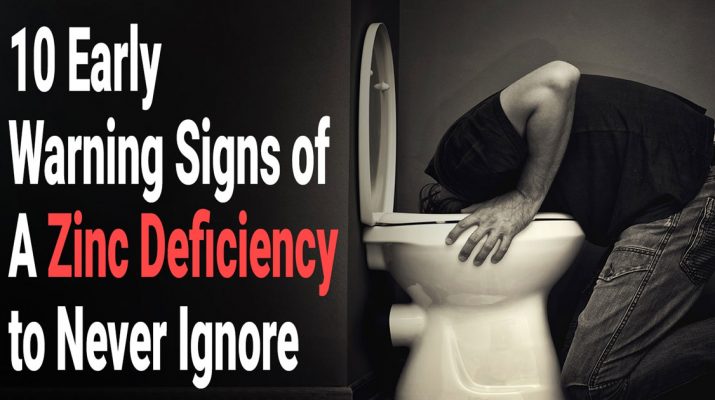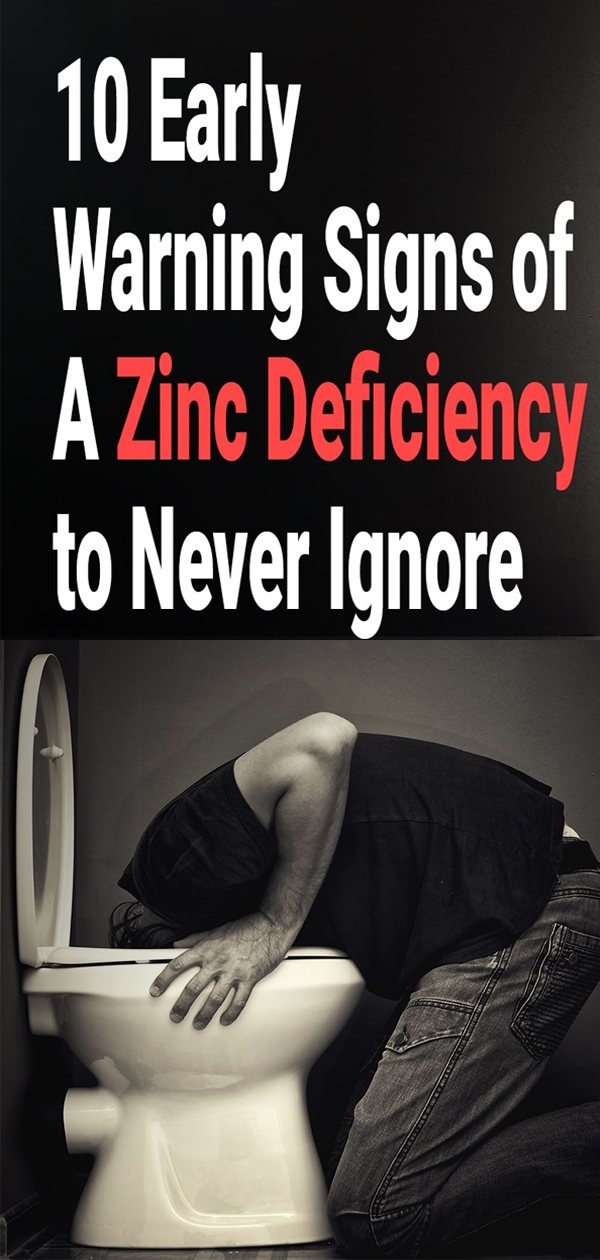Zinc deficiency can be a major issue overlooked by vegans and strict vegetarians. You can essentially eat the right foods, but due to bioavailability, phytic acid, and medical conditions, your body can’t properly absorb enough of the essential mineral.
Deficiency presents in your body early because zinc interacts with your body on multiple levels and affects your body’s major systems. Understanding the balance required can assist you and your doctor in diagnosing and starting a zinc deficiency treatment that works with your diet.
What Is Zinc?
It is an essential nutrient that your body can’t store or produce on its own. Zinc’s function in your body ranges from infant and child growth/development to your immune system working properly.
However, those are only two of over 300 functions your body uses zinc to perform. Others include DNA and protein synthesis, aiding in healing your wounds, supporting enzymes, and cell development and division.
Zinc occurs naturally in animal and plants. Its synthetic form is also common in fortified foods, such as bread, crackers, and other grain-based goods.
Who Is At Risk For Deficiency?
Your diet and any health conditions that cause malabsorption will determine your risk of a zinc deficiency. Carnivores and omnivores have the lowest deficiency risk. Strict vegetarians and vegans pose the greatest risk for insufficiency related to their diet.
Age can sometimes be a factor; however, this is mostly in older infants and children than adults. Babies and children with a history of low zinc levels might find the problems continue into adulthood.
Increased Risk If You Have:
• Crohn’s disease
• Diabetes
• Chronic renal disease
• Chronic liver disease
• Malabsorption syndrome
• Sickle cell disease
• Ulcerative colitis
• Short bowel syndrome
• A vegan or vegetarian diet
• Had gastrointestinal surgery
• Other digestive disorders, such as IBS
• Alcohol addiction
• Anorexia and bulimia
• Medications, such as antibiotics, diuretics, and penicillamine
In addition to the list, pregnant and breastfeeding women require additional zinc, and they’re at a greater risk for developing a deficiency. The same applies to infants between seven months and year of age who breastfeed exclusively or if the breastfeeding mother is deficient.
How Much Zinc Should You Receive?
Your age and sex introduce two factors for determining your recommended dietary allowance (RDA). Men should aim for 11mg per day. Women should receive 8mgper day unless they’re pregnant or breastfeeding. Then they should receive 11-12mg per day.
Risks Associated With Zinc
If your diet is your main source of zinc, it’s unlikely you will overdose or come anywhere close to high levels. Overdosing on zinc is more common with supplements or long-term use of higher doses under a doctor’s direction.
The actual toxicity or maximum dose is unknown.
A Zinc Overdose Or Toxicity Can Cause:
• Vomiting
• Nausea and/or loss of appetite
• Abdominal cramps
• Headaches
• Diarrhea
• A decrease in good cholesterol
• Decreased absorption of other key nutrients, like copper and iron
Because of these complications, you should take supplements under the care of a doctor, naturopath, or a dietician that is aware of your diet. Your doctor might recommend a higher dose and adjust it as needed until your zinc levels balance.
If you choose to supplement without guidance, choose a supplement with a lower dose more in line with the recommended daily milligrams to avoid possible toxicity. Understand that without blood work and monitoring, you can’t know for certain how much zinc your body receives from food alone.
How To Diagnose A Deficiency?
Only a blood test can diagnose a true deficiency, but it’s not so simple. Your body can’t store zinc. A blood test will show what’s currently in your blood, and if you ate enough zinc-rich foods, your results can return normal.
Your doctor will likely base their diagnosis on your symptoms, and in severe or troubling cases, they might order a blood test to determine your zinc levels.
Assist your diagnosis by keeping a food journal, especially if you’re already consuming a zinc rich diet. This is due to malabsorption syndromes, medications, or other gastrointestinal issues that could be causing your deficiency. You and your doctor can use this information to find the cause and a suitable course of treatment.
10 Zinc Deficiency Symptoms
1. Unexplained Weight Loss
Dropping weight quickly without dieting, exercise, or illness as the cause can be an early warning sign that something in your body is wrong. Be sure to let your doctor know as this can be a symptom of deficiency as well as an early sign for other diseases and conditions.
2. Mental Fog
Waking in a fog before your morning coffee or tea isn’t the same as a mental cloud that persists throughout the day. It can make concentrating on simple daily tasks difficult. This can affect adults and children.
3. Persistent Diarrhea
Frequent, loose stools can be a sign and cause of a deficiency. You might also be more susceptible to other bacteria and parasites, such as E. coli. Unsurprisingly, taking zinc supplements or consuming more zinc containing foods can aid in stopping deficiency caused diarrhea.
4. Sense Of Smell And Taste Drastically Change
Zinc is partially responsible for developing your sense of smell and taste. The enzymes that allow us to develop these senses require zinc to work, so when you’re deficient, you’ll notice changes to smell and taste capabilities. Often you’ll have a metallic taste in your mouth. Supplementing or increasing zinc-rich foods restores it.
5. Cuts And Scrapes That Take Too Long To Heal
Slow healing wounds can be one symptom. Increasing zinc or using zinc-based creams can promote healing too, which makes it an effective zinc deficiency treatment. Zinc and skin health share a tight-knit link. This is due to its job in our bodies reacting at the cellular level. Without it, our bodies can’t heal properly.
6. Frequently Sick Or Long-Lasting Colds And Viruses
Your immune system requires zinc to function properly. It directly supports T-cell development, assists in killing bad bacteria, viruses, and cancerous cells too. In addition, it supports protecting cellular membranes. When your body is deficient, you become more susceptible to illness.
7. Hair Loss Or Thinning Hair
More investigation is needed, but Indian researchers believe zinc deficiency and hypothyroidism share a close link.
Zinc plays a vital role in hormone balance, which means if you don’t receive enough, your thyroid can reduce its function or lead to adrenal fatigue. Both cause hair thinning and loss in men and women. Returning zinc levels to a normal range reversed the symptoms.
8. Dry Skin
If you’re constantly hydrating and eating a nourishing diet, your skin shouldn’t be dry, itchy, and flaking, right? Wrong. Unfortunately, if you’re lacking zinc, your skin will show the earliest signs.
Besides its role in cellular development, your body won’t receive the anti-inflammatory and anti-itch properties zinc delivers.
9. Bruises
Ever wake up and discover unexplained bruises? Do you develop bruises from light bumps? Some people bruise easily, and they might linger a bit too long too. Genetics often take the rap, but it could be that you’re not getting enough zinc for your body to heal at a normal rate.
10. Acne
As a teenager, hormonal acne is an unpleasant fact, but as an adult, it’s an early symptom of deficiency. It’s one of the more common symptoms you’ll notice. However, most people overlook the connection to a possible deficiency in zinc.
Zinc Deficiency Treatment
In most cases, you should address your diet and seek out zinc sources naturally. Some people will need to supplement. Do speak with a doctor or nutrition specialist if you’re already eating a zinc-rich diet but symptoms persist. It might be a sign of another underlying condition or an absorption issue.
Vegans And Vegetarians
If you’re a vegan or strict vegetarian, you do have food-based options. However, you might find it easier to supplement. Receiving enough zinc might be difficult since non-meat sources can contain phytic acid that hinders your body from using the zinc.
On top of phytic acid, the bioavailability of zinc in plant-based foods isn’t comparable to meat, dairy, eggs, and shellfish. This means your body can’t use it as efficiently, and you might need to eat more. However, some of the better vegan and vegetarian sources are high in fat and calories.
Soaking, heating, sprouting, and fermenting plant-based sources reduces the phytic acid and increases your body’s ability to use the zinc. The upside is these foods are lower in fat and calories, but the steps do take additional work and planning.
Zinc Rich Foods
• Legumes: adzuki, lentils, chickpeas, soybeans, mung beans, and black beans
• Seeds: pumpkin, sesame, and hemp
• Nuts: pine nuts, peanuts, pecans, almonds, and hazelnuts
• Whole grains: whole wheat flour, quinoa, amaranth, buckwheat, oats, and rye
• Potato: all varieties
• Green beans
• Leafy greens: kale, Swiss chard, and spinach
• Dark chocolate
Zinc-Fortified Foods
• Whole grain and multigrain cereals, breads, and crackers
• Soymilk
• Cashew milk
• Almond milk
Zinc Supplements
Supplements aren’t created equal. According to studies, you should opt for zinc citrate, zinc sulfate, or zinc gluconate, which are water-soluble and your body absorbs well.
Final Thoughts On Zinc Deficiency
Zinc deficiency can be a real problem for vegans and vegetarians, but most carnivores and omnivores won’t require supplements unless they have certain medical conditions or take medications that interact with absorption.
Vegans and vegetarians might need a supplement to treat their deficiency. They can also readdress certain areas of their diet. Luckily, they don’t need to eat meat or animal by-products to receive enough zinc.
Sprouting and fermenting legumes, seeds, and grains increases zinc’s bioavailability. It does the same for other essential vitamins and minerals, making your tasty, healthy choices more healthful.
Talk with your doctor or naturopath if you have any of the symptoms discussed here to explore a zinc deficiency treatment that works for you.


